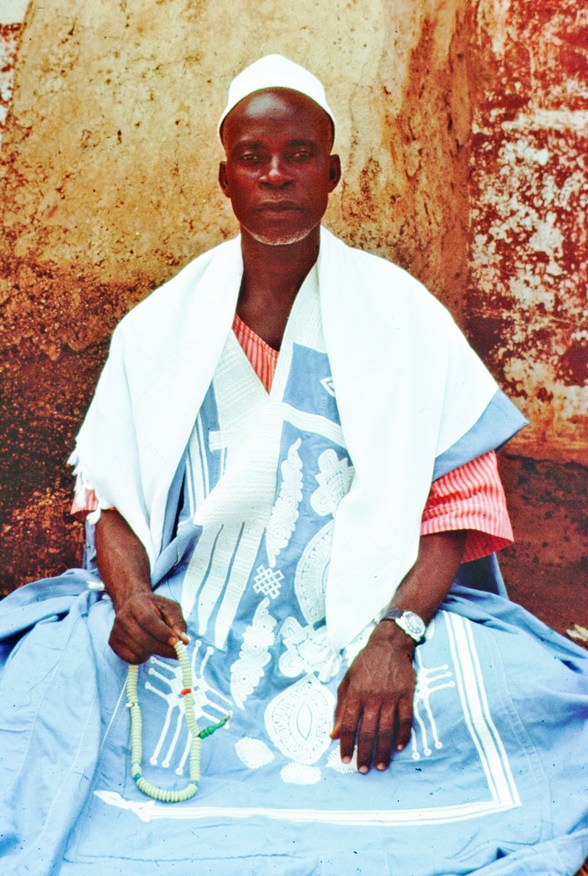
Alhaji Ibrahim moved from Voggo to Nanton as a child, where he was trained in drumming by one of the most learned of the elder drummers in Dagbon, the late Nanton Lun-Naa Iddrisu Mahama. From Nanton, Alhaji Ibrahim moved to Tamale, and from there he traveled and spent several years in southern and central Gold Coast -- at Kintampo, Kumasi, Accra, Takoradi and Tarkwa -- before returning to Tamale for the last thirty-five years of his life.
Tamale does not have a drum chief, but Alhaji Ibrahim was the leader of the drummers in Tamale, the one to whom cola was sent by anyone who wanted drummers for a funeral or a wedding. He led the Takai group as well, and from the time of Kwame Nkrumah, he represented Dagbamba drummers for the Northern Region at the Arts Council of Ghana and the National Cultural Centre. He was also at the center of the craft aspects of drum-making, drum-repairing, and drum-selling. He died in 1988 at Nanton.
Because of his travels, Alhaji Ibrahim's learning extended beyond Dagbamba drumming. He also learned how to beat the dances of many cultural groups besides Dagbamba. When he returned to Tamale, he introduced these new styles of drumming, and he taught many drummers how to beat dances so that people from other cultures could participate at Dagbamba social gatherings. His reputation as a musician was matched by his reputation as a learned person. He was brought up in Dagbamba villages, and he knew village life, yet his travels made him a sharp observer of social customs. It was the combination of his knowledge of Dagbamba tradition with his worldliness that distinguished him even from his seniors and earned their respect. The proverbs which drummers applied to him as his praise names were "Wisdom has no end" and "Respect is more than anything."
Alhaji Ibrahim became widely known through his work with the American scholar, John Chernoff. He trained Chernoff in drumming, and his clear discussions about drumming were integrated into Chernoff's book, African Rhythm and African Sensibility, helping that book attract worldwide attention to African music and to Ghana. He was the lead drummer on two recordings of Dagbamba drumming, Master Drummers of Dagbon, vols. 1 and 2, released by Rounder Records.
